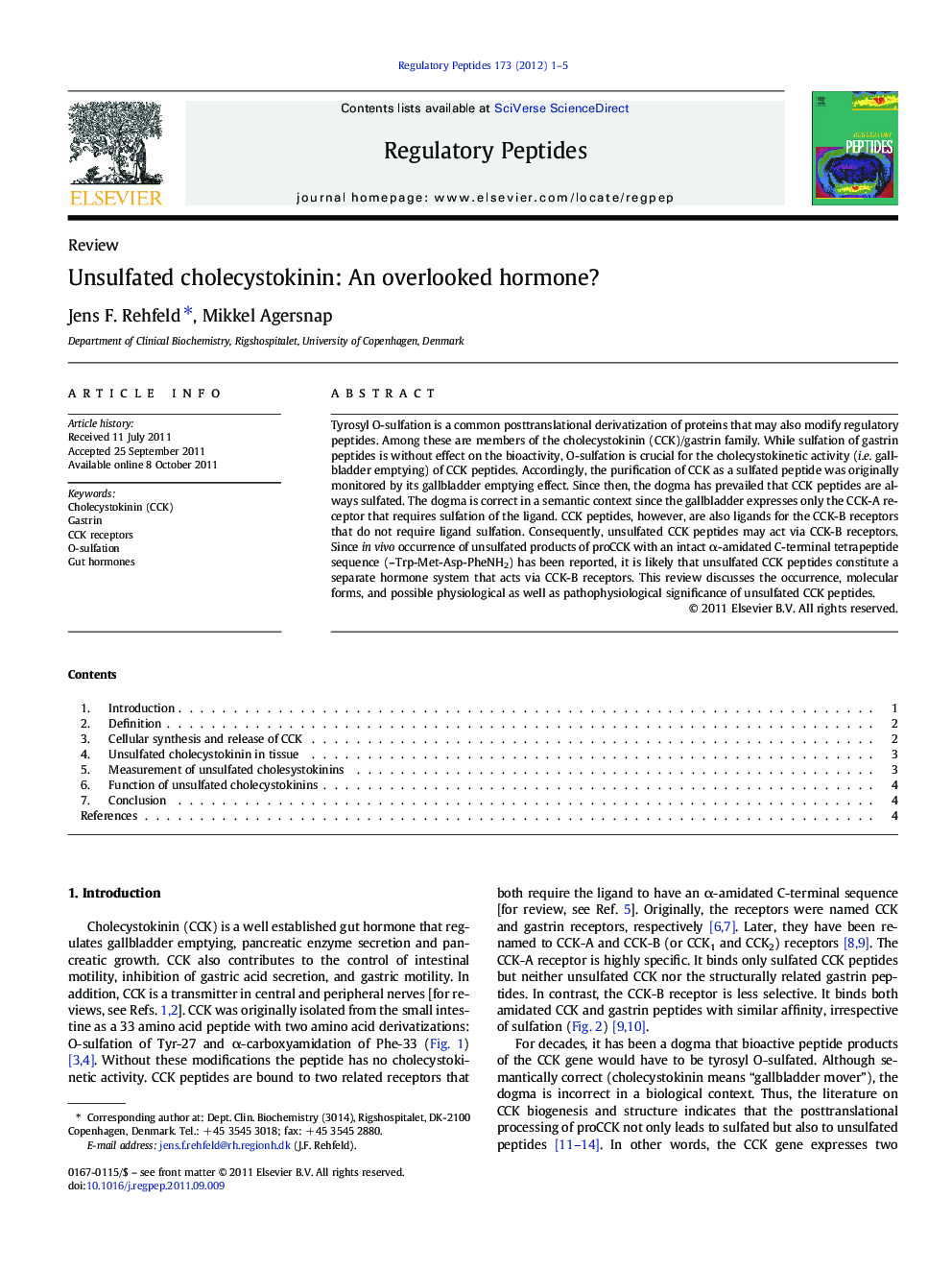| Article ID | Journal | Published Year | Pages | File Type |
|---|---|---|---|---|
| 8361459 | Regulatory Peptides | 2012 | 5 Pages |
Abstract
Tyrosyl O-sulfation is a common posttranslational derivatization of proteins that may also modify regulatory peptides. Among these are members of the cholecystokinin (CCK)/gastrin family. While sulfation of gastrin peptides is without effect on the bioactivity, O-sulfation is crucial for the cholecystokinetic activity (i.e. gallbladder emptying) of CCK peptides. Accordingly, the purification of CCK as a sulfated peptide was originally monitored by its gallbladder emptying effect. Since then, the dogma has prevailed that CCK peptides are always sulfated. The dogma is correct in a semantic context since the gallbladder expresses only the CCK-A receptor that requires sulfation of the ligand. CCK peptides, however, are also ligands for the CCK-B receptors that do not require ligand sulfation. Consequently, unsulfated CCK peptides may act via CCK-B receptors. Since in vivo occurrence of unsulfated products of proCCK with an intact α-amidated C-terminal tetrapeptide sequence (-Trp-Met-Asp-PheNH2) has been reported, it is likely that unsulfated CCK peptides constitute a separate hormone system that acts via CCK-B receptors. This review discusses the occurrence, molecular forms, and possible physiological as well as pathophysiological significance of unsulfated CCK peptides.
Related Topics
Life Sciences
Biochemistry, Genetics and Molecular Biology
Biochemistry
Authors
Jens F. Rehfeld, Mikkel Agersnap,
